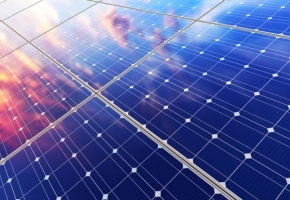How modern bio-energy helps reduce global warming

GLOBAL carbon-dioxide emissions from the energy sector are on the rise again. After three years of remaining flat, they grew by 1.4% in 2017, and analysis from the International Energy Agency (IEA), the world’s energy watchdog, suggests they could rise faster this year. This contrasts with the sharp reduction in emissions needed to meet the goals of the Paris climate agreement.
Scaling up the use of renewable energy is essential to any efforts to contain global warming. Renewables have grown rapidly in recent years, and a report by the IEA shows this growth will continue. It reckons that renewables will account for 40% of the growth in global energy use until 2023. Renewables, including hydropower, will grow fastest in the electricity sector, accounting for 30% of total electricity generation in 2023. The use of renewables in heat and transport, which make up 80% of that consumption, remains limited. Decarbonising these sectors is essential if climate targets are to be met, but it will be impossible without the contribution of a critical, yet often overlooked source of renewable energy: modern bio-energy.
Bio-energy is traditionally associated with the burning of things like wood, charcoal and animal waste. Modern bio-energy, however, is different. It refers to the production of sustainable biofuels like wood pellets, ethanol, biogas (produced from the breakdown of organic matter) and biodiesel (produced from plants such as rapeseed). In 2017 modern bio-energy provided half of all renewable energy consumed—and four times as much as solar and wind combined. Biofuels can help decarbonise sectors for which other options may be scarce.
Bio-energy can contribute to climate-change mitigation . This is why the IEA’s modelling into how to keep global warming below 2℃ . This century shows that the share of modern bio-energy in the world’s energy mix will grow from 4.5% to 17% by 2060. Accelerating the deployment of bio-energy becomes even more important in light of the IPCC’s report, which emphasizes the importance of keeping global warming below 1.5℃, not 2℃, in order to avoid droughts, floods, extreme heat and poverty. Without a significant increase in investment in bio-energy and a supportive policy and regulatory environment, that goal will be out of reach.







